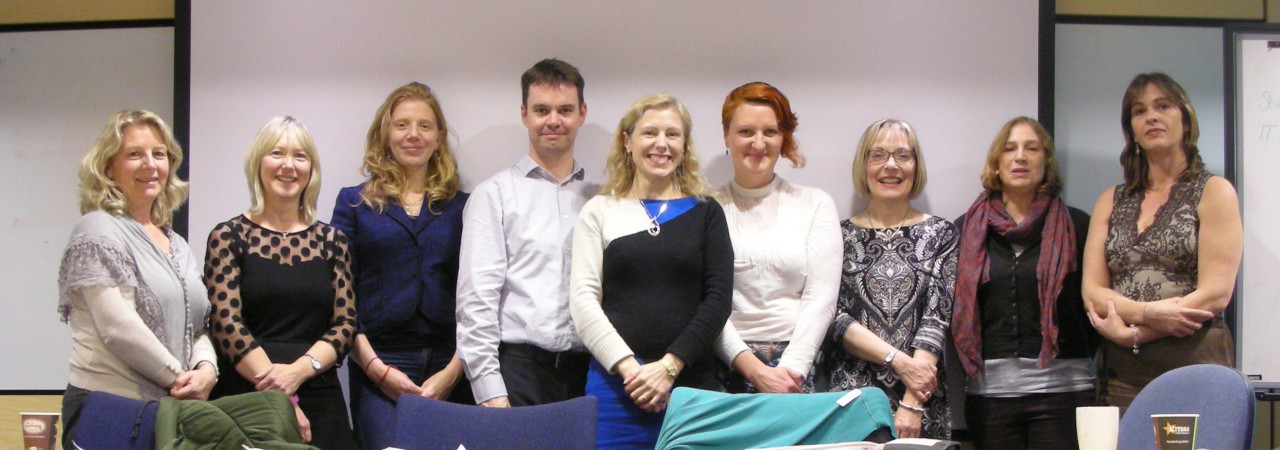
Meta-ethnography
Reporting Guidance





Based at the Nursing Midwifery and Allied Health Research Unit (NMAHP-RU) at the University of Stirling. Emma is a senior lecturer in the NMAHP-RU, Faculty of Health Sciences and Sport, University of Stirling. Her background is in social science (psychology) and health services research. She has expertise in meta-ethnography, non-Cochrane systematic reviewing and mixed methods (qualitative and quantitative) studies. Her research focuses on qualitative synthesis methodologies and families and health.

Eddie is an associate professor in applied health research at the NMAHP Research Unit, Faculty of Health Sciences and Sport, University of Stirling. He has expertise in the development and evaluation of complex allied health profession interventions; realist evaluation; and consensus methods. He is the joint lead developer of the Stirling eDelphi Platform ©.

Background in social science (sociology), highly experienced qualitative researcher and project manager of mixed methods studies, experience of conducting systematic reviews including realist synthesis, previous member of Scottish Intercollegiate Guidelines Network (SIGN) guideline development group.

Nicola is an associate professor in the School of Health and Social Care, Edinburgh Napier University has a background in the generation and use of evidence for health professional practice. She has experience of guideline development and implementation. She has conducted qualitative evidence synthesis. Has co-authored a Health Technology Assessment (HTA) report on qualitative evidence synthesis methods (LINK). She teaches research and evidence-based practice at under- and post-graduate level.

Jane specialises in evidence synthesis and methodology and methods development and evaluation, is co-chair of the Cochrane Methods Executive, lead convenor of the Cochrane Qualitative and Implementation Methods group, major publisher of meta-ethnographies as editor of the Journal of Advanced Nursing, member of international collaboration to synthesise evidence to inform the WHO global guideline on task shifting http://optimizeMNH.org member of the National Institute for Health and Care Excellence (NICE) methodological hub consortium, contributor of synthesised evidence for two NICE guidelines. Developed consolidated criteria for reporting qualitative research (COREQ). Co-facilitates an internationally-recognised qualitative evidence synthesis course (ESQUIRE) that features meta-ethnography.

Ruth has expertise in advanced literature searching, critical appraisal, and synthesis of a broad range of evidence types (including qualitative research) within public health and social sciences. Ruth has managed evidence review projects for a range of funders including the National Institute for Health and Clinical Excellence (NICE), the Welsh Assembly Government and NHS Evidence. Her research interests include school health and wellbeing improvement, social determinants of health and knowledge translation. She is also an Associate Editor for the Cochrane Public Health Group (CPHG).

Ruth has been involved in many different aspects of public health research for over 20 years. She spent over 10 years in the Cochrane Collaboration as a Review Group Co-ordinator and as a reviewer. She also worked at the NHS Centre for Reviews and Dissemination in York University. She returned to the University of Edinburgh to undertake her PhD on developing a measure of informed choice in cancer screening. Prior her role in SCPHRP, she was at the University of Stirling where she was Co-Director of the Centre for Population and Public Health and Lead for the Physical Activity and Diet Research Programme. Her methodological expertise is in systematic reviews and evaluation research (both qualitative and quantitative.

Based at the University of Stirling. Background in health psychology, in particular self-management and behaviour change for patients with long-term conditions. Experience of conducting qualitative and quantitative research and systematic reviews.

Isabelle was a research fellow working on the project, based the University of Stirling at the NMAHP Research Unit. Background in social science and global health research. Expertise in qualitative research methodologies.

Rachel was a home-based research fellow working on the project. Expertise in qualitative health research and qualitative research methodologies.

Kevin Swingler is a lecturer in Computing Science at the University of Stirling. He is programme director of the MSc. in Big Data and runs a spin-out company that provides hardware, software and consultancy for the collection, processing and use of data. Before moving into academia, he ran a company that produces machine learning and data analytics software, selling solutions in banking, insurance, marketing and automotive sectors. His current research interests include new machine learning algorithms and the use of data analytics in health and well being.
eMERGe also has an advisory group made up of lay people, academic experts and other professionals from a wide range of institutions.